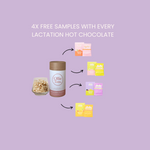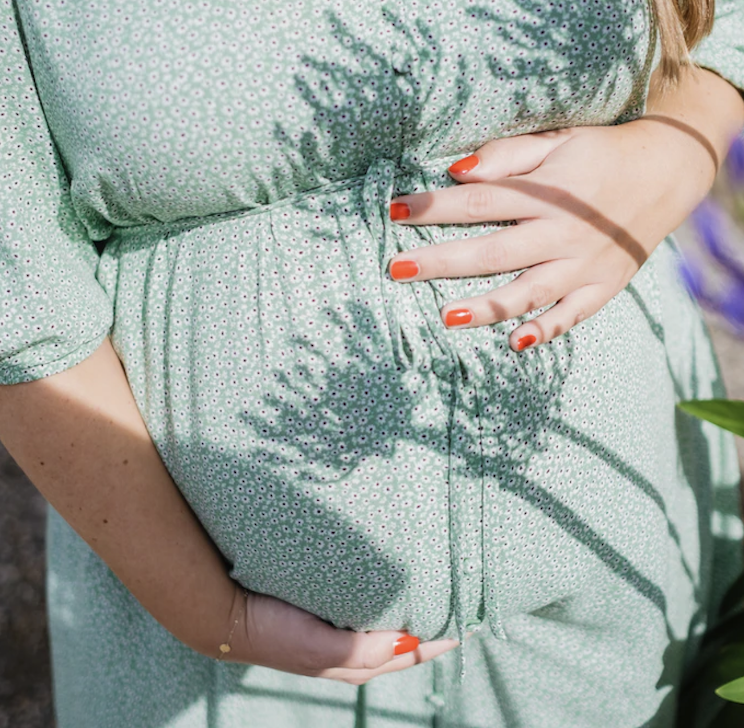Proper hydration is vital during pregnancy, yet many expecting mothers remain uncertain about how much water to drink throughout the different trimesters. Hydration isn’t just about quenching thirst—it's directly tied to both maternal and fetal health. This guide offers detailed trimester-specific hydration tips to help you stay healthy and comfortable from the first week through delivery.
Why Hydration Is Crucial Throughout Pregnancy
Key Functions of Water During Pregnancy (Blood Volume, Amniotic Fluid, Nutrient Delivery)
During pregnancy, your body undergoes dramatic changes, increasing its need for fluids. Water plays several essential roles:
-
Expanding Blood Volume: By mid-pregnancy, blood volume increases by approximately 50%. This extra blood is vital for transporting oxygen and nutrients to the baby.
-
Amniotic Fluid Regulation: Water helps maintain the amniotic sac, which cushions and protects the fetus, allowing for healthy growth and development.
-
Nutrient Delivery & Waste Removal: Water supports digestion and helps deliver vital nutrients through the bloodstream to the placenta, aiding fetal development. It also assists in removing waste via the kidneys.
Increased Fluid Needs During Pregnancy Explained
On average, non-pregnant individuals require around 2 to 2.5 liters of fluids per day. However, during pregnancy, this need can rise to 2.7 to 3 liters daily to support bodily functions, fetal growth, and temperature regulation.
How Dehydration Affects Maternal Health and Baby’s Development
Dehydration can lead to serious complications, including:
-
Low amniotic fluid levels (oligohydramnios)
-
Neural tube defects
-
Urinary tract infections (UTIs)
-
Preterm labor
-
Fatigue and headaches
The Role of Hydration in Managing Common Pregnancy Symptoms (Fatigue, Constipation, Headaches)
Water intake can significantly alleviate frequent pregnancy complaints:
-
Fatigue: Mild dehydration is a common cause of sluggishness and tiredness.
-
Constipation: Adequate fluids soften stool, preventing constipation.
-
Headaches: Hydration often relieves pregnancy-related headaches triggered by fluid loss.
Overview of Changing Hydration Needs Across Pregnancy
Your hydration requirements evolve throughout pregnancy:
-
First Trimester: Focus on gradual hydration to combat nausea during first trimester hydration.
-
Second Trimester: Increased water for growing tissue and blood volume.
-
Third Trimester: Prioritize hydration for labor preparation and breastfeeding.
First Trimester Hydration: Building a Healthy Foundation
Recommended Daily Water Intake During First Trimester
Aim for at least 8-10 cups (about 2-2.5 liters) of fluids daily. Prioritize water, but herbal teas and fresh juices in moderation also count.
Managing Nausea & Morning Sickness with Small, Frequent Sips
Morning sickness can make drinking water difficult. To stay hydrated:
-
Sip small amounts frequently throughout the day.
-
Try chilled or infused water with ginger or lemon.
-
Ice chips and popsicles can also help.
Electrolytes: When and If They’re Necessary Early in Pregnancy
Electrolyte drinks aren't typically required unless you experience severe vomiting or dehydration. In such cases, natural electrolyte sources like coconut water or electrolyte-replenishing solutions may help—but consult your healthcare provider first.
Signs of Dehydration to Watch for in Early Pregnancy
Stay alert to these signs of dehydration:
-
Dark yellow urine
-
Dizziness or lightheadedness
-
Dry mouth or cracked lips
-
Rapid heartbeat
Practical Tips: Infused Water & Hydration Routines for First Trimester Moms
Infused waters can make hydration more appealing. Try combinations like:
-
Cucumber + mint
-
Lemon + ginger
-
Strawberry + basil
Establishing a routine—such as drinking a glass of water upon waking and before meals—can also help.
Second Trimester Hydration: Supporting Growing Needs
Daily Water Intake Targets for the Second Trimester
Increase your daily intake to 10-12 cups (2.5-3 liters) to support increasing body demands.
The Role of Hydration in Circulation, Tissue Growth, and Energy
Hydration is crucial for:
-
Supporting growing tissues like the placenta and uterus
-
Maintaining optimal blood flow
-
Sustaining energy levels and reducing dizziness
Reducing Risk of Urinary Tract Infections with Proper Hydration
Drinking enough water flushes bacteria from the urinary tract, reducing the risk of UTIs—a common second-trimester issue.
Coping with Increased Thirst & Cramping Through Adequate Fluids
You may feel thirstier during this phase. Cramping can also occur due to changes in circulation and pressure. Water, along with magnesium-rich foods, can ease cramping.
Easy Hydration Hacks for Busy Second Trimester Moms
-
Carry a refillable water bottle at all times.
-
Set hydration alarms on your phone.
-
Drink a glass of water before every snack or meal.
Third Trimester Fluid Intake: Preparing for Labor & Delivery
Water Intake Goals During the Third Trimester
In the final trimester, strive for 10-13 cups (2.5-3.2 liters) per day, adjusting for your weight, climate, and activity level.
How Hydration Helps with Swelling, Digestion & Joint Health
Proper hydration:
-
Reduces swelling (edema) by improving circulation.
-
Aids digestion and prevents constipation.
-
Lubricates joints, easing the added weight pressure on hips and knees.
Preventing Preterm Labor Risks Linked to Dehydration
Severe dehydration may trigger uterine contractions, increasing the risk of preterm labor. Consistent hydration is vital to minimize this risk.
Staying Hydrated for Labor & Breastfeeding Prep
Hydration not only preps your body for labor but also supports early milk production postpartum. Consider light electrolyte beverages if sweating excessively during labor prep or exercise.
Special Tips for Hydrating During Late Pregnancy (Frequent Urination, Discomfort)
Frequent urination can discourage hydration. Tips:
-
Drink most fluids earlier in the day to reduce nighttime trips.
-
Elevate your feet when resting to reduce swelling alongside hydration.
-
Continue sipping water steadily but avoid excessive intake at once.
How to Adjust Water Intake Based on Personal Factors
Activity Levels & Hydration Adjustments
Physically active pregnant women need additional fluids. Aim to drink 1 cup of water per 20 minutes of exercise.
Climate & Environmental Conditions Affecting Fluid Needs
Hot and humid weather increases fluid loss through sweat. In such cases, increase water intake by at least 1-2 additional cups daily.
Medical Considerations (Gestational Diabetes, Preeclampsia Risks, etc.)
If you have gestational diabetes or preeclampsia, your healthcare provider may offer tailored fluid guidelines to avoid complications.
Nutrition & Food Choices That Impact Fluid Requirements
Some foods, such as high-fiber meals, require more water for proper digestion. Additionally, salty or processed foods may increase your fluid needs.
Listening to Your Body’s Signals Alongside Guidelines
Always pay attention to your body’s thirst cues. If you feel dry, fatigued, or develop headaches, prioritize water intake.
Smart Hydration Tools & Tips for Pregnant Women
Tracking Water Intake Easily (Apps, Journals, Water Bottles)
Water-tracking apps and hydration journals can help you stay on track. Consider smart water bottles that light up as a reminder to drink.
Choosing the Right Bottles for Pregnancy Hydration (Feature Hydrobump Products)
Hydrobump offers pregnancy-friendly water bottles designed with:
-
Easy-grip handles
-
Measurement markers
-
Wide-mouth openings for fruit infusion
These bottles make tracking and enjoying your water easier during pregnancy.
Incorporating Hydrating Foods Into Your Diet (Fruits, Veggies, Soups)
Water-rich foods are a great hydration source, including:
-
Watermelon, strawberries, and oranges
-
Cucumbers and bell peppers
-
Broths and soups
These options help boost fluid intake naturally.
Setting Hydration Reminders Throughout the Day
Set alarms on your phone or use hydration apps to get reminders at regular intervals—especially helpful for busy moms-to-be.
Making Hydration Enjoyable: Flavor Enhancers & Variety
Natural ways to enhance water flavor include:
-
Adding citrus, mint, or herbs
-
Sparkling water (without added sugars)
-
Herbal teas like raspberry leaf (consult doctor before use)
FAQs About Hydration by Trimester
Can You Drink Too Much Water During Pregnancy?
Yes, over hydration can dilute electrolytes, leading to a rare condition called hypothermia. Aim to spread fluid intake throughout the day rather than drinking large amounts at once.
What’s the Best Type of Water to Drink (Filtered, Tap, Mineral)?
Filtered water is generally safest. However, local tap water may be fine if regularly tested. Mineral water is also acceptable in moderation but avoid high-sodium varieties.
Should Hydration Levels Change if You Exercise While Pregnant?
Yes. Increase your water intake during exercise, aiming for small, frequent sips before, during, and after workouts to prevent dehydration.
How Does Caffeine Impact Hydration During Pregnancy?
Caffeine can have a mild diuretic effect. Limit caffeine to 200 mg per day and offset it with extra water.
Are Sports Drinks or Electrolytes Safe in Pregnancy?
Most commercial sports drinks are high in sugar and should be consumed sparingly. Natural electrolyte options like coconut water are safer alternatives, but consult your healthcare provider.
Conclusion: Staying Hydrated Through Every Trimester
In conclusion, staying adequately hydrated throughout pregnancy is essential for both maternal health and the baby’s development.
Each trimester brings unique hydration needs—ranging from combating morning sickness in the first trimester, supporting tissue growth and preventing infections in the second, to preparing the body for labor and breastfeeding in the third. By drinking enough water daily, incorporating hydrating foods, and adjusting fluid intake based on personal factors like activity level, climate, and medical conditions, expecting mothers can ease common pregnancy symptoms such as fatigue, constipation, and swelling.
Using tools like hydration-tracking apps, specialised water bottles, and infused water recipes can make the process enjoyable and consistent. Most importantly, listening to your body’s signals and maintaining a steady hydration routine throughout all trimesters will ensure optimal comfort and well-being.
For convenient and pregnancy-friendly hydration solutions, consider exploring Hydro bump's range of specially designed water bottles and hydration products to help you meet your daily water intake goals with ease.











